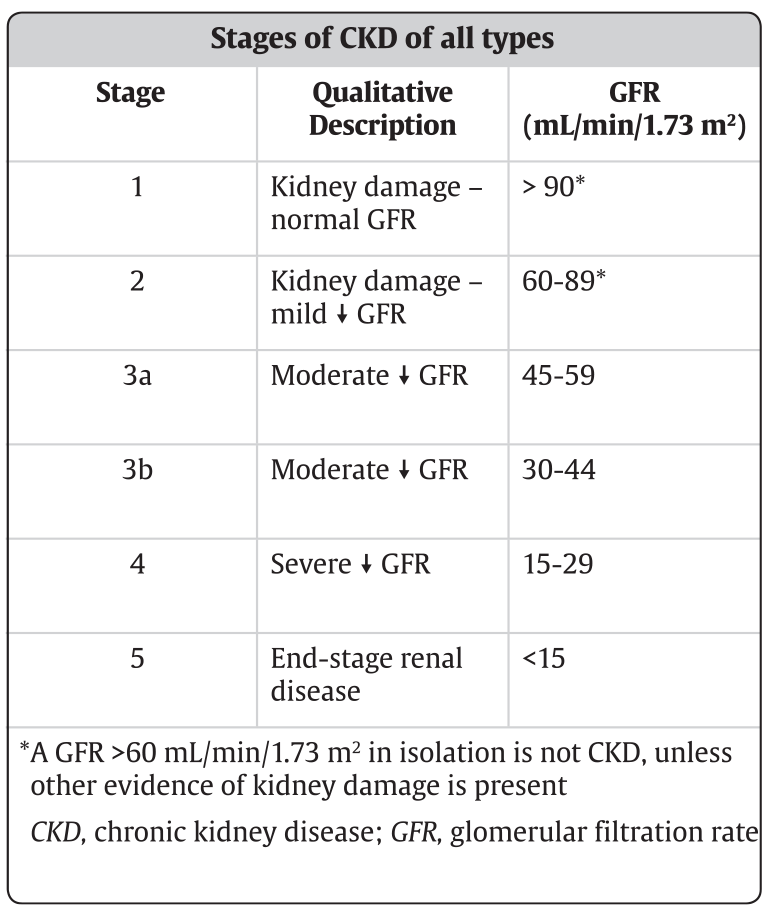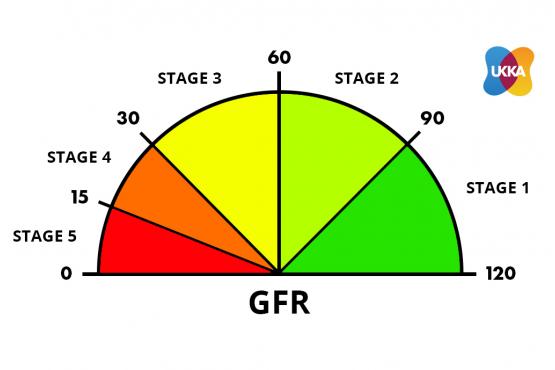CKD Stage 4. At the latest. That is the short answer.
You should see a kidney specialist, called a nephrologist, when your eGFR (estimated glomerular filtration rate the key measure of kidney function) is less than 30 mls/min. This occurs at Stage 4 CKD. The creatinine blood test is likely to be 150-200 mcmol/L at this point.


Courtesy of UKKA
CKD has 5 stages based on the GFR (based on the blood creatinine level).
It is not just the CKD stage (based on GFR/creatinine) that decides whether you need to be seen. There are other factors that affect the need for referral:
Note. Patients with CKD3B should be discussed with a nephrologist, even if not all of them need to be seen.
The initial role of a nephrologist is to:
They do this by asking you questions (called the ‘history’), examining you, and carrying out investigations – including a battery of blood and urine tests and a renal (kidney) ultrasound. A few patients (not many) will require a kidney biopsy.
Whatever the cause, your nephrologist will treat Stage 4 CKD with medicines that help your symptoms; and other health problems related to chronic kidney disease, such as diabetes and high blood pressure.
These medicines include:
Your doctor may ask you to stop taking medicines that can damage your kidneys, such as pain medicines called NSAIDs (nonsteroidal anti-inflammatory medicines).
As well as the treatments above, specific causes of CKD require specific treatments – e.g. a urinary catheter in obstructive nephropathy (often due to prostate problems in men), or drugs to suppress the immune system in chronic glomerulonephritis (GN).
Your nephrologist will decide if your kidneys are close to failure (Stage 5 CKD) and if you need to start treatment. If you need treatment, they will talk with you about your choices, which include:
Note. Fortunately only about 1 in 100 of people with CKD end up in CKD5 and need dialysis or a transplant.
Most nephrologists work with a specialist renal nurse practitioner. It is important to see one of them too. Ask your nephrologist, if they work with one and get referred. There is evidence you will get a better outcome if you see one as well as a specialist doctor.
They are especially good at making sure you are on the right drugs, and preparing people for dialysis and organising kidney transplants. They are very nice and may be easier to talk to that your doctor!
Yes, it can do. In fact, in this large Canadian study, advancing age, CKD regression (getting better) or death (i.e. die with it, not from it) were more likely than CKD progression or kidney failure: Liu, 2021.
We have described at what CKD stage should you see a nephrologist. Stage 4 CKD (or before if kidney function deteriorating). A minority of patients get to this stage. We hope it has been helpful.